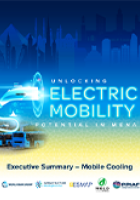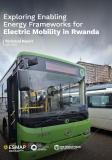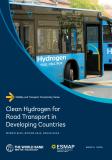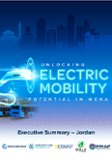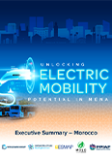Publications
This report analyzes the impact of MAC systems on the energy demand and associated GHG emissions derived from the electrification of buses and taxis in selected cities of Egypt, Jordan, and Morocco. The findings not only apply to these three countries, but also to other countries with a similar hot climate throughout the Middle East and North Africa.
To evaluate this impact, four scenarios were modeled: the business-as-usual (BAU) scenario represents current EV models operating in these countries, which integrate conventional MAC systems and were not designed considering cooling demand optimization, and three efficient scenarios (ES1, ES2, ES3), where e-buses and e-taxis would integrate energy-efficient MAC systems and would be designed to minimize their cooling load. The study assesses barriers and gaps faced by the three countries and outlines mitigation strategies for promoting MAC optimization.
RELATED: Egypt || Jordan || Morocco || Regional Chapeau Report
World Bank. Unlocking Electric Mobility Potential in MENA - Executive Summary on Mobile Cooling (English). Washington, D.C.: World Bank Group. http://documents.worldbank.org/curated/en/099111723215532547/P1705460f2331300b0b90b00925ad3bd04a
